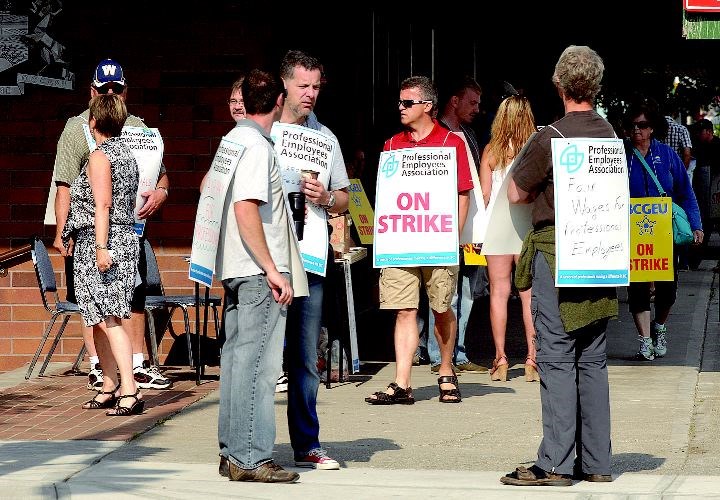VICTORIA -- After months of difficult bargaining, the union representing about 26,000 public service workers has reached an agreement with the provincial government.
The B.C. Government and Service Employees' Union (BCGEU) has been in negotiations over their two-year contract since January and Premier Christy Clark announced the successful end of talks at the Union of B.C. Municipalities convention on Friday morning.
The two sides were at odds over wage increases and talks broke off at the end of March. A May strike vote demonstrated an 82 per cent mandate for job action, which union members carried out on four separate days throughout the summer.
The agreement, which still has to go to members for ratification, provides for the wage increases the union was asking for. Talks concluded Thursday in Victoria after three days of bargaining.
Clark called the increases modest and said they would not involve a tax hike.
"This is a significant tentative agreement reached under the 2012 Cooperative Gains Mandate," said Minister of Finance Mike de Jong. "It recognizes the respect we have for the employees who deliver important public services."
BCGEU president Darryl Walker said the package provides for an overall four per cent increase over the length of the two-year deal. These are increases of one per cent dating back to April and August of this year and another one per cent rise coming next August and December.
"I think people want settlements but it's the terms they have to deal with," Walker said. "We were able to gain them, I think, without concessions and I think that's extremely important."
Also key to coming to an understanding was the agreement to cancel the request for proposal process to privatize the province's liquor distribution network.
About 600 of the union's members work in the province's three distribution warehouses. This summer the government shortlisted companies to flesh out ideas to see if it would be cheaper to run the warehousing and trucking of booze privately.
Walker said the privatization could be "the death knell" of the system.
"We believe that by Sunday openings, by expanding hours and by more stores, we'd like to build the system, that there's revenue to be gained for the people of British Columbia and for the province of B.C.," he said.



